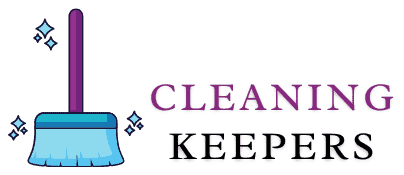Delving into how to become a crime scene cleaner opens a unique but critical profession. Crime scene cleaners play an important role in the aftermath of crime or accident scenes, dealing with potential biohazards and providing some relief to affected individuals. The job is not for the faint-hearted but offers unique rewards and a sense of service that few other occupations can match.
Educational Requirements and Training
Now that we’ve piqued your interest in the role of a crime scene cleaner let’s explore the educational requirements and training necessary to embark on this unique career path. This section will guide you through the essential qualifications and specific training programs you must undertake to become a professional crime scene cleaner.
Absence of Formal Education Necessities
For those considering starting their own cleaning business, understanding license requirements is crucial. Unlike many professions, a high school diploma or equivalent is generally sufficient. The focus is more on specialist training, physical fitness, and a strong emotional constitution to handle the nature of the work. This makes the profession accessible to a broad range of individuals.
Importance of Special Training and Certifications
Specialized training and certifications, such as those provided by the Occupational Safety and Health Administration (OSHA) and bloodborne pathogen training, are crucial in this field. Additionally, exploring avenues like securing commercial cleaning contracts can enhance your professional prospects, protect yourself and others from potential health risks, and adhere to the stringent regulations in the cleanup process. This specialized training is the key to becoming a competent and reliable crime scene cleaner.
Availability of On-the-job Education Sessions
Apart from official certifications, much of the learning happens on the job. Newcomers often shadow experienced crime scene cleaners, gaining invaluable hands-on experience and mentorship. This real-world exposure, combined with in-house training sessions, For further insights into the financial aspects of similar careers, consider reviewing pool cleaner salary insights. Ensures a comprehensive understanding of safety protocols, decontamination processes, and equipment operation, setting the foundation for an effective career in crime scene cleaning.
Essential Qualifications and Skills
Transitioning to the next crucial step of becoming a crime scene cleaner, we delve into the essential qualifications and skills that a professional in this field must possess. Beyond training and education, certain inherent qualities and mastery of specific skills can tremendously impact your effectiveness and success in this demanding profession.
Personal Qualities Needed
Moreover, understanding the broader scope of commercial cleaning services can be beneficial. A strong stomach is vital due to the often gruesome nature of the job. Attention to detail ensures every trace of an incident is thoroughly cleaned, maintaining public health and safety. Compassion and understanding the emotional trauma associated with crime scenes allow for sensitive handling of personal items and interactions with those affected. These unique qualities, combined with technical skills, form the foundation of a successful crime scene cleaner.
Physical Demands and Work Hours
The job of a crime scene cleaner involves a significant amount of manual labor, requiring physical strength and stamina. Tasks include lifting heavy equipment, scrubbing surfaces, and standing for extended periods. The role often demands long hours, sometimes at odd times, due to the unpredictable nature of incidents. Quick response and thoroughness are of utmost importance as part of the job.
Emotional Resilience in the Job
Emotional resilience is a key quality for crime scene cleaners, as they frequently encounter distressing scenes. The ability to dissociate personal feelings while working in such environments is critical. Furthermore, maintaining a level head, even in the face of gruesome sights or high-stress situations, is essential for effective and efficient work. Ultimately, emotional toughness ensures personal well-being and the standard of work delivered.
Getting Equipped
Moving on to another crucial aspect of becoming a crime scene cleaner, we will now provide a comprehensive overview of the specific tools and personal protective equipment (PPE) necessary for performing the job safely and efficiently. The right equipment is instrumental in ensuring not just the cleaner’s safety but also the thoroughness of the clean-up operation.
Required Tools and Equipment
The essential tools of a crime scene cleaner include personal protective equipment (PPE) such as gloves, goggles, respirators, and biohazard suits to protect against hazardous substances. Cleaning supplies encompass industrial-grade disinfectants, enzyme solvents to break down biological matter, and absorbent materials for liquid waste. Other tools include buckets, brushes, scrapers for hardened substances, fogging machines for odor control, and biohazard bags for waste disposal.
Tips for Your First Day as a Crime Scene Cleaner
On your first day as a crime scene cleaner, bring all your protective equipment, cleaning supplies, and a strong mental resolve. Expect a challenging work environment where each job varies significantly. Be ready to learn, adapt, and apply your training to real-world scenarios. Cultivate an open mindset and lean on your team for support; their experience will be your best guide.
Finding Employment and Building Experience
As we delve deeper into our guide on becoming a crime scene cleaner, we shift our focus towards the pivotal phase of finding employment and building on-the-job experience. This step marks the beginning of your professional journey and provides a platform where classroom knowledge is tested and honed through practical application.
A complementary guide on starting a window cleaning business offers additional insights into the cleaning industry.
Job Search Strategies in Crime Scene Cleaning
Gaining insights on how to get clients for a cleaning business can also be instrumental in your career development. Job opportunities in crime scene cleaning are often listed on employment websites such as Indeed, LinkedIn, or specialized industry portals. Additionally, companies providing these services usually advertise vacancies on their websites. Networking is crucial, so contact professionals in the field, join related forums, and attend industry events. Lastly, consider completing an internship or volunteering to gain experience and make valuable connections.
Gaining Experience in Related Fields
Related fields that can provide valuable experience include domestic cleaning, which offers insight into effective cleaning techniques and the use of various cleaning agents. Construction work can also be useful with its demand for physical strength and understanding of safety protocols. Additionally, roles in the healthcare sector, particularly those involving waste management and sanitation, can offer exposure to handling biohazard materials and maintaining strict hygiene standards.
Importance of a Strong Resume and Interview Preparation
A compelling resume and robust interview preparation are crucial when applying for a job as a crime scene cleaner. Your resume should highlight relevant experience, skills, and certifications. Preparing for interviews by researching common questions, practicing responses, and gaining a deep understanding of the role and the industry can significantly impact your chances of landing the job.
Career Advancement and Long-Term Considerations
In this final section detailing how to become a crime scene cleaner, we will explore the potential avenues for career advancement and some long-term considerations that prospective workers in this field should consider. Career progression is not only about climbing the hierarchical ladder but also involves expanding one’s knowledge base, honing skills, and adapting to the evolving landscape of this unique profession.
Potential Career Paths and Advancement Opportunities
The field of crime scene cleaning offers several avenues for career progression. After gaining experience on the ground, cleaners can advance to supervisory roles, Additionally, learning about cleaning business success strategies can guide your career trajectory. Overseeing teams and managing clean-up operations. Further advancement may lead to roles in company management. Additionally, branching out into fields such as forensic cleaning or biohazard remediation can provide additional opportunities for diversifying skills and career growth.
Importance of Ongoing Training and Upskilling
In the evolving field of crime scene cleaning, ongoing training and upskilling are paramount. As industry standards and techniques advance, continuous learning ensures your knowledge remains relevant and you can deliver high-quality work. Additionally, upskilling opens new avenues for career progression and diversification, keeping you competitive.
Discussing Emotional Support and Coping Mechanisms
Handling crime scenes can be emotionally challenging. It’s essential to have a support network, including colleagues, friends, or professional counselors. Taking care of your mental health is critical, and strategies may include regular debriefing sessions, mindfulness practices, and setting boundaries between work and personal life. Always remember, it’s okay to seek help when needed.
Conclusion
How to become a crime scene cleaner involves a series of crucial steps, including gaining proper education, acquiring necessary certifications, equipping yourself with the right tools, and building relevant experience. Remember that this career demands physical stamina, strong mental resilience, For those interested in broader opportunities within this field, considering starting a commercial cleaning business may be a valuable step. And a constant willingness to learn and adapt. If you possess these traits, this unique profession awaits you. So, let’s start your journey on becoming a crime scene cleaner and making a difference in an often overlooked but incredibly important field.











